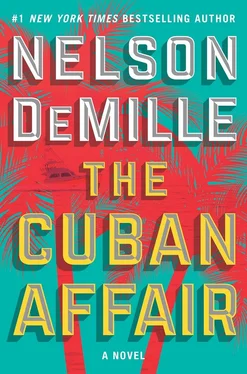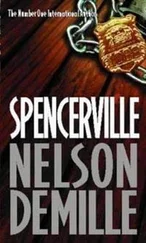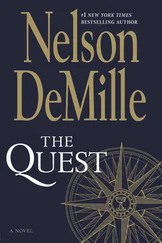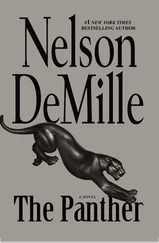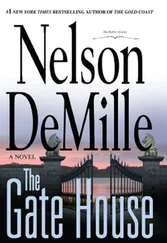Sara returned the smile.
“Also,” said Felipe, “they try to conserve fuel.” He added, “The regime is broke.”
This was sounding like an escape from the Swiss Navy. Unless the Cuban Ministry of the Interior was specifically looking for us. I asked Felipe, “What kind of patrol boats do they have?”
“They’ve got, like I said, two boats here. They used to have seven here, gifts from the Russians, but after the economic collapse they’re running only two out of Cayo Guillermo. One is a Zhuk-class eighty-footer, which can make about twenty-five knots — same as The Maine.” He glanced at Sara, hesitated, then said, “She mounts two sets of twin 12.7-millimeter machine guns, manually aimed, and she has a crew of eleven.”
I didn’t think he got all that from the Cuban crew or from a public information tour of the boat. So I concluded that Felipe had been briefed back in Miami by Eduardo’s amigos.
Felipe sipped his daiquiri and continued, “That’s the boat that goes out at dusk and returns about three or four in the morning. It runs west along the coast, looking for rafters, which it can’t see on its radar. But its radar can see a small boat that may have been stolen for an escape.” He added, “If we’re spotted visually or by radar, the Zhuk can’t overtake us at his max speed, but he can stay with us, and if he’s close enough, he can hail us and order us to stop, or...” He glanced at Sara again. “... Or fire warning shots.”
Right. It’s hard to ignore machine-gun fire.
Felipe looked at me. “I think, with our speed, we can avoid this guy.”
I agreed. “And we have radar.”
Felipe nodded. “Also, half the Russian electronics on these tubs don’t work, and the crews aren’t well-trained in electronics.”
They must have gone to the same school as Jack. Well, this was sounding easier. I wondered what we could do to make it a fair fight.
Felipe finished his daiquiri and looked for the waitress.
I said, “Make it coffee.”
He didn’t like that but he didn’t argue, and got back to business. “Okay, then there’s the second boat, which is a Stenka-class patrol boat. The one that goes out about midnight. She’s big, about a hundred and twenty feet, and can make thirty-eight to forty knots.”
That was the patrol boat I saw anchored at the marina. I wouldn’t want to see her on the high seas.
Felipe continued, “At that speed, she’s a threat, and at that size she can go out in any weather.” He drank the dregs of his daiquiri and continued, “She has a crew of thirty-four, but usually sails with half that. Her radar is sophisticated, but again, not always operational or well-manned.”
“Armaments?”
“A few manually aimed machine guns, and two radar-controlled thirty-millimeter twin rapid-fire cannons — one in the bow, the other in the stern.”
That’s what I saw at the marina. And radar-controlled meant they could hit you in the dark, even with rough seas and fog. Not good. Maybe I should call for another round of drinks.
Felipe looked at Sara and assured her, “They’re not supposed to fire at boats that are trying to flee Cuba.” He looked at me. “You may remember an international incident about twenty years ago.”
I was fifteen. And totally uninterested in international incidents. “Refresh my memory.”
“There was a tugboat, named 13 de Marzo, stolen by Cubans trying to escape. A Guarda Frontera boat fire-hosed it, but it wouldn’t stop, so they rammed it and sunk it. Seventy-two people drowned, including twenty-three kids. There was a big international uproar, and since then the regime has promised not to fire on or use any force to stop a fleeing boat.”
“What’s the bad news?”
“The bad news is that they’re full of shit. They may or may not fire warning shots that accidentally hit you, and they may or may not try to ram you, but they will definitely come alongside and board you.”
Sort of like Pirates of the Caribbean. “All right, I think we understand the threat assessment, but we’re not Cubans trying to flee the country. We’re actually Americans, and Fishy Business is part of the Pescando fleet, and you’ve gotten permission to go night fishing.”
“If they see us on radar, they don’t know that. They’ll try to call us on the radio, or hail us on their bullhorn and order us to stop. At that point, we can stop and explain on the radio who we are and hope they don’t come aboard and start looking at passports and cargo, and looking for a donation. But—”
“They’re not coming aboard,” I assured him.
Felipe nodded.
Sara looked at her Cuban boyfriend and said, “I will not be taken alive.”
Felipe didn’t know how to reply to that, but said, “The choice may not be ours to make.”
She looked at me.
I said, “If I can get into open water, The Maine can outmaneuver a bigger craft, even if it’s capable of forty knots.” Which was true. But we all knew I couldn’t outrun radar-controlled rapid-fire cannons.
Felipe said, “We have another issue. Fuel.” He explained, “We’ve been keeping the fuel light.” He looked at me. “On your orders. But we always had enough to make it to Key West. Except tonight.” He further explained, “We came in about four this afternoon, and as always we pulled up to the pumps to put a few hundred gallons of diesel in the tanks, but the pumps were closed.” He added, “Probably out of fuel.”
“What do we have?”
“We have less than three hundred gallons.”
“Okay...” So, depending on winds and tides, at a speed of twenty-five knots we might have a cruise range of three hundred miles. It was about two hundred and fifty miles to Key West, but the rule of thumb is always to have one hundred and fifty percent of the fuel you think you need, particularly for a blue-water trip. But to radiate optimism I said, “We’ll make it.”
Felipe looked doubtful, thinking, I’m sure, about his side trip into the mangrove swamp, rough seas, winds, and maybe outmaneuvering a faster patrol boat.
“Or close enough,” I said. “We’ll be in international waters in less than an hour, and U.S. waters in about six hours.”
He nodded, but we both knew we didn’t want to be towed in by the Coast Guard. Not only was it embarrassing, but if they had to tow us they might also ask questions. Like, “Where were you and what do you have onboard?” Or, “Are those bullet holes in your hull?”
Well, that was a worry that wasn’t worth worrying about. We should be so lucky as to get that far.
I decided we could all actually use another drink, though I insisted it be beer. You can’t get drunk on beer.
I glanced at my watch. We’d been here close to an hour, and though we weren’t attracting attention, we should think about splitting up — Sara to the room, and me nursing a beer and keeping an eye on the Buick. Felipe needed to go back to the marina.
Our beers came — Coronas — and we clinked bottles and Sara said, “To a happy voyage home.”
Anchors aweigh.
Felipe took a piece of folded paper from his pocket and handed it to Sara. “That’s the map. It’s easy. You go west on the beach road for about two miles and you’ll see a sign on the left that says ‘Swamp Tours.’ It’s about a half mile on the dirt road to the dock.”
That sounded close to where I’d taken my siesta in the thick brush. “Anybody go there at night?”
“I checked it out two nights ago at eleven. No one there.”
I had to admit that Felipe was competent. Or he was a jerk-off who was motivated. I mean, like Jack, Sara, and me, he was putting his life on the line, so he had motivation to keep his head out of his ass. And why, I wondered, had he volunteered for this? I’m sure for the money. And maybe for the cause. But also because he couldn’t stay in Miami while his girlfriend was risking her life in Cuba. She might think less of him. Or even cheat on him.
Читать дальше
